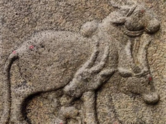01/6Spotting early signs of cancer is important

According to Pancreatic Cancer UK, pancreatic cancer has the lowest survival rate of all common cancers. This makes it all the more important to spot the early warning signs of this serious health condition.
Health experts believe paying attention to the changes in your bowel habits and stool type could help in noticing the warning signs even in the initial stages. Being able to detect cancer early can create the difference between life and death.
02/6What is pancreatic cancer?


Pancreatic cancer starts in the tissues of the pancreas, which lies behind the lower part of the stomach. Pancreas releases enzymes that help in aiding digestion and produces hormones which help in managing blood sugar.
The most common type of cancer that can form in your pancreas usually begins in the cells that line the ducts which carry digestive enzymes out of your pancreas.
Read more: Coronavirus: Do's and Don'ts to protect yourself against top 5 COVID symptoms this Diwali
03/6What causes changes in the poo


Changes in the stool is a common feature of pancreatic cancer. In the initial stages, cancer in the head of the pancreas can press on the common bile duct. This prevents the normal release of bile into the intestines, which can result in obstructive jaundice.
The patient notices yellowing of their skin and eyes, darker urine, and pale-coloured stools. Their skin can also become very itchy.
04/6Note this change in stool colour and type


Acholic stools are an important and one of the most common red flags of pancreatic cancer.
According to the US National Library of Medicine, it is characterised by a clay-coloured appearance due to lack of the bile pigment.
Pancreatic enzyme insufficiency causes pale, fatty, greasy, often foul-smelling stools, which don’t easily flush away in the toilet. In terms of colour, the stool could be light green, pale brown, orange, yellowish, or even white. They tend to be frequent, loose, sloppy, and large in volume.
Read more: THESE foods and cooking styles are secretly raising your cholesterol levels
05/6Other key signs of pancreatic cancer


Apart from changes in stool there are several other symptoms which could be associated with cancer in your pancreas. These include:
-Abdominal pain
-Jaundice
-New onset diabetes
-Change in bowel habit
-Indigestion
-Nausea and vomiting
-Weight loss
-Weakness
-Non-cardiac chest pain
-Shoulder pain
-Loss of appetite
06/6When to see a doctor


If you notice any of these above mentioned symptoms, including pale and greasy stools, then you should consult your doctor. It is best to get a clear diagnosis from your doctor instead of dismissing or taking your symptoms for granted.
Your doctor will arrange blood tests to check for infection and liver function. They may also check for pancreatic markers such as CEA and CA 19-9 (most common tumor associated antigens used in the staging of patients with rectal cancer and other parts of the colon). Other tests such as a liver ultrasound or CT scan may be needed to check your liver and bile ducts.
























































































closecomments
SIGN IN WITH
FacebookGoogleEmail